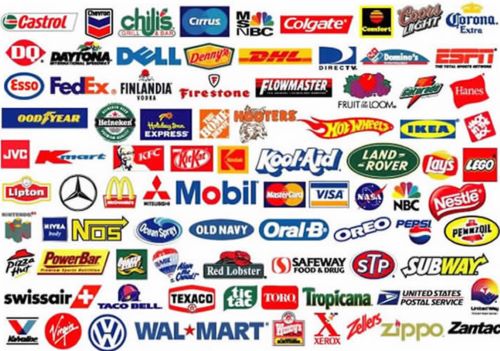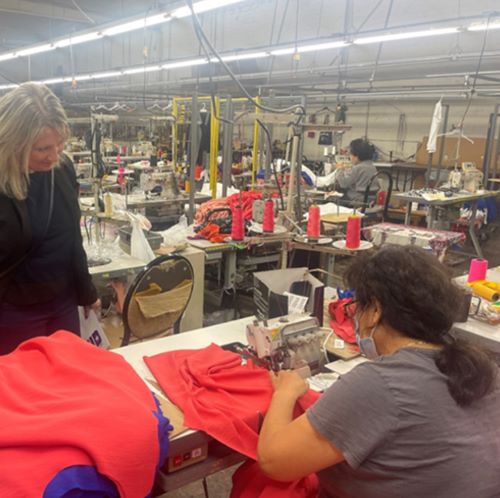

The road ahead is difficult, but a society that prioritizes people over profits is essential.

By Matthew A. McIntosh
Public Historian
Brewminate
Introduction
In the United States, the land often celebrated for its promise of freedom, opportunity, and upward mobility, there lies a darker, less visible crisis — the systemic abuse of American workers and consumers by large corporations. While the ideal of the American Dream paints a picture of prosperity achievable through hard work, the reality for many is a daily struggle against exploitative practices that undermine workers’ rights, erode consumer protections, and concentrate wealth and power in the hands of a few. Corporate abuse, both overt and subtle, has become an entrenched problem that demands urgent attention and reform.
The Nature of Corporate Abuse
Corporate abuse refers to the various ways large companies leverage their economic power to exploit workers, manipulate markets, evade accountability, and prioritize profits over people. This abuse takes many forms, including but not limited to:
- Workplace Exploitation: Low wages, excessive hours, unsafe working conditions, suppression of labor organizing, and unfair treatment.
- Consumer Exploitation: Predatory pricing, misleading advertising, monopolistic practices, and the sale of unsafe or low-quality products.
- Political Manipulation: Lobbying for favorable laws, influencing regulations, and funding political campaigns to maintain power and limit competition.
- Environmental Neglect: Dumping waste, polluting air and water, and externalizing environmental costs onto communities, often those already marginalized.
Each of these facets contributes to a system that disproportionately benefits corporate executives and shareholders while burdening workers, consumers, and the environment.
Exploitation of American Workers
Overview

One of the most egregious aspects of corporate abuse is the exploitation of the American workforce. Despite the country’s wealth and productivity, many workers face stagnant wages that have barely kept pace with inflation for decades. According to data from the Economic Policy Institute, the inflation-adjusted hourly wage for typical workers in the U.S. has grown only marginally since the 1970s, even as corporate profits and CEO compensation have skyrocketed.
Wage Theft and Misclassification
Many corporations engage in practices like wage theft — illegally withholding wages, forcing unpaid overtime, or violating minimum wage laws. Additionally, the misclassification of employees as independent contractors denies workers benefits such as healthcare, retirement contributions, and unemployment insurance. This trend is particularly common in the gig economy, where companies claim workers are contractors to skirt labor protections.
Union Busting and Suppression of Collective Bargaining
Corporate resistance to unions remains fierce. Employers often hire consultants specialized in union-busting tactics to intimidate or fire workers who attempt to organize. The decline of union membership over the past four decades has left many workers without a collective voice, resulting in reduced bargaining power for fair wages and safe working conditions.
Unsafe and Unhealthy Work Environments
Workplace safety is another area where corporations have been culpable. The Occupational Safety and Health Administration (OSHA) frequently cites companies for violations, but enforcement is often weak. The COVID-19 pandemic revealed glaring failures in protecting workers in essential sectors, with many employees forced to work without adequate protective equipment or sick leave.
Consumer Exploitation and Corporate Malfeasance
Predatory Pricing and Monopolistic Behavior
Large corporations frequently use their size to engage in predatory pricing, driving smaller competitors out of business to establish monopolies or oligopolies. Once competition is eliminated, these corporations can raise prices and reduce quality with little fear of losing customers. This is evident in industries such as telecommunications, pharmaceuticals, and agriculture.
Deceptive Marketing and Data Exploitation
Consumers are also vulnerable to deceptive advertising, hidden fees, and misleading terms and conditions. In the digital age, corporations harvest vast amounts of personal data, often without informed consent, to manipulate consumer behavior and sell targeted advertising — raising profound privacy concerns.
Product Safety and Ethical Responsibility
Instances of corporations knowingly selling harmful products or covering up safety issues are numerous. From the automotive industry’s safety defects to the pharmaceutical industry’s opioid crisis, corporate negligence has caused widespread harm.
Political Influence and Corporate Power
Overview

Corporate abuse extends deeply into the political sphere. Through lobbying, campaign contributions, and the revolving door between corporate and government roles, corporations wield enormous influence over legislation and regulation.
Lobbying and Deregulation
Lobbying expenditures in the U.S. reach billions annually. Corporations use this power to secure tax breaks, weaken environmental and labor regulations, and block reforms that could protect workers and consumers. Deregulation often leads to crises — the 2008 financial collapse, for example, was partly fueled by corporate influence that rolled back safeguards.
Citizens United and Corporate Personhood
The 2010 Supreme Court decision in Citizens United v. Federal Election Commission equated corporate political spending with free speech, unleashing a flood of money into elections. This development further entrenches corporate influence and diminishes the political power of ordinary citizens.
Environmental and Community Impact
Overview
Corporations have also inflicted significant environmental damage, disproportionately affecting low-income and minority communities. Toxic pollution, deforestation, and climate change impacts have been driven largely by corporate activities that prioritize short-term profits over sustainability.
Environmental Racism
Studies have shown that hazardous waste sites, polluting factories, and other environmental burdens are more frequently located near communities of color and poor neighborhoods. These communities bear the health consequences of corporate environmental abuse without adequate protection or compensation.
The Human Cost
Beyond statistics and economic analyses, the human cost of corporate abuse is staggering. Families struggle to make ends meet on low wages, workers endure unsafe conditions, consumers face financial exploitation, and communities suffer health and environmental hazards. The dream of economic security and social mobility feels out of reach for millions.
Moving Toward Accountability and Reform
Addressing corporate abuse requires a multifaceted approach:
- Strengthening Labor Rights: Protecting the right to unionize, raising minimum wages, and cracking down on wage theft and misclassification.
- Regulating Monopolies: Enforcing antitrust laws to break up or regulate dominant corporations.
- Enhancing Consumer Protections: Improving transparency, data privacy laws, and product safety oversight.
- Campaign Finance Reform: Limiting corporate influence in politics to restore democratic accountability.
- Environmental Justice: Enforcing stricter environmental protections and addressing environmental racism.
- Corporate Accountability: Holding executives and corporations legally responsible for abuses and damages.
Movements advocating for these reforms — from labor unions and consumer groups to environmental activists and progressive politicians — have gained momentum, but resistance from entrenched corporate interests remains formidable.
Conclusion
The abuse of Americans by large corporations is a profound challenge that undermines the ideals of fairness, democracy, and opportunity. Recognizing the systemic nature of this abuse is the first step toward demanding accountability and building a more just economy. The road ahead is difficult, but a society that prioritizes people over profits is not only possible — it is essential for the health and dignity of all Americans.
Originally published by Brewminate, 06.17.2025, under the terms of a Creative Commons Attribution-NonCommercial-NoDerivatives 4.0 International license.


